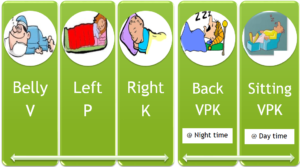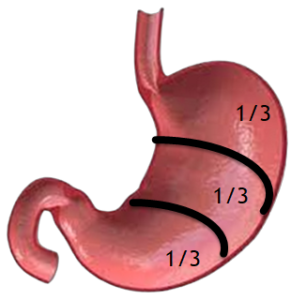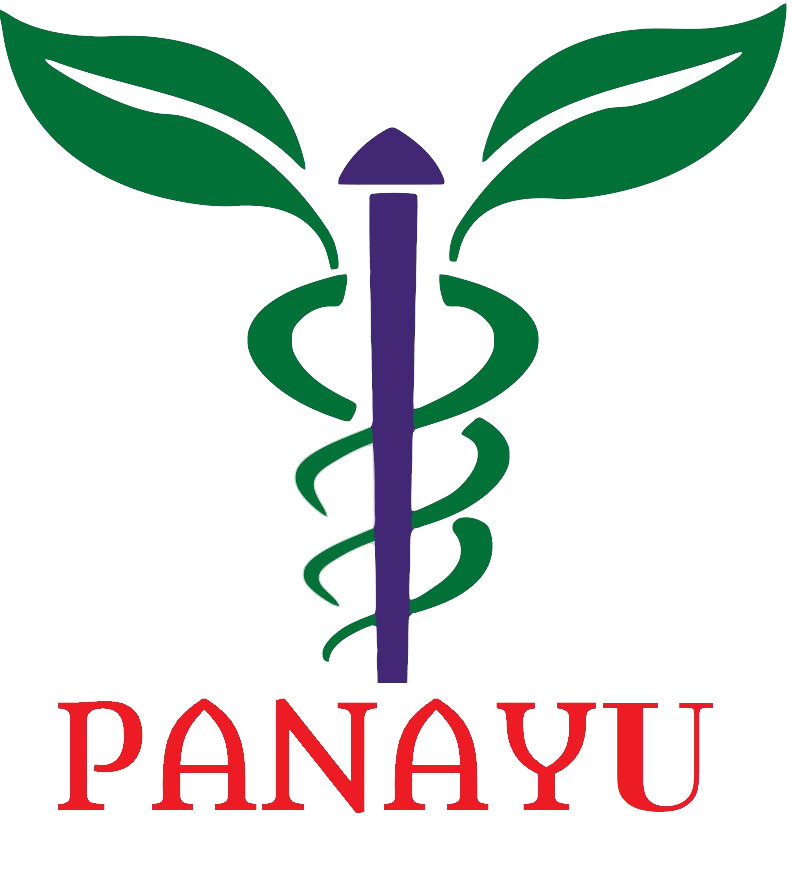Everybody wants to live a quality long life but only a few attain it.
This is everybody’s chance to get it by just modifying a few things in life.
Ayurveda in Day-to-day Life
We all know the relevance of Food and Lifestyle (Dinacharya) in our health. Ayurveda not only emphasizes these two aspects but also other things for Perfect Health.
- Physical and mental urges
- Sex and Sleep
- Panchakarma
- Reducing Bad habits
Definition of health
Whose dosha is in balance, appetite is good, all body tissues and natural urges are functioning properly, and whose mind, body, and spirit are cheerful.– Charak
Thus WHO’s definition of health comprises all the aspects of Ayurveda’sdefinition of health.
“Health is the state of complete physical, mental and social wellbeing and not merely an absence of disease or infirmity”. (WHO)
Tri Upa-sthambha
- Food
- Sleep
- Bramha Charya ( in context meaning, Sexual Life )
3. Bramhacharya viz a viz Sex
“Brahma” means Aatma Gyaan or Tatva Gyaan & “Charyaa” means To Dwell. Thus, the whole word, Brahmacharyaa means, To Dwell in Knowledge.
See the following references – (ref. Charak Sharir 4/8, 5/4, 5/19, Charak Chikitsa 20/3; Sushrut Sutra 29/30, Sushrut Sharir 1/7)
First, have ‘Vaajikarna’ done; this method makes a person strong, and happy and increases the urge for sex.
Then have sex with one having all qualities you like.
After the act, have food mixed with sugar, milk+ sugar, meat soup, bath, rest in an airy place, and sleep.
Some Basic rules to follow for enjoying Healthy Sexual Life.
Age limit – Only between 16 – 70 years of age.
According to seasons– Every 3rd day in –Spring & Autumn. Every 15th day in – Rainy & Summer. Any time if the person is healthy in Winter.
Contraindicated
Menstrual women, not willing to have sex, dirty, unhappy, of higher caste, old, ill, amputated, pregnant, depressed, of exact genetic origin, teacher, saint.
One should not have sex at the evening, at midnight, midday, on a holy day, when shy, a filthy place, when hungry, ill, sad, urge for defecation, urine, thirsty, and in general weakness.
Do not have sex with other spices than human and in other places than vagina. Holding the urge for expulsion of ‘shukra’ is also contraindicated.
Complication
One should refrain from excessive sex, if done it may result in pain, ‘kasa’, jwara, breathlessness, weakness, ‘Pandu roga’, kshaya, convulsions.
It results in loss of vision, life, and the glow of the skin.
Treatment
‘Vajikarana’ therapy and following good rules for having sex.
2. Sleep
Sleep is referred to as a state, in which, all senses are detached (in the resting phase ) from the physical body; a good/deep sleep is when the 6th sense ( Manah ) is also in the resting phase.
Benefits of Good Sleep
- Physical strength
- Mental strength
- Happiness
- Sense organs work well
- Longevity
Problems with Improper Sleep
- Unhappiness
- Thinness
- Weakness
- Impotency
- Loss of memory
- Death
How to sleep
Until or when awake, lie on your back remembering god, good people, and good things.
The bed should be in a clean and beautiful place with no crowd.
The bed should not be small and should have all comforts.
It should be of knee length high and the head should be directed towards the east or south.
Do not keep your legs toward elderly people and do not sleep in a head-low position.
Time to Sleep
Earliest – 1 ‘prahar’ (3 hours) after sunset.
Latest – Before 12 midnight.
When to avoid Sleep
- Sleeping in evening
- Immediately after food
- Immediately after studying
- Immediately after sex.
- Sleeping in the daytime
*Summer & Diseases exempted.
When you cannot sleep in daytime (even in summers)
- Obese
- Had oily food
- Kapha prakriti
- Poisoned
When you can sleep in the daytime (in any season)
- Weak
- Singing
- Study
- Alcohol
- Sex
- Detox
- Weight lifting
- Walking
- Indigestion
- Chest Injury
- Emaciated
- Thirst
- Diarrhea
- Pain
- Breathlessness
- Old /Child
- Thin bodied
- Fallen from a great height
- Mad / angry / Sad
- After traveling
- Feared
- Awaken all night
- Oka Saatmya ( Habitual )
I am text block. Click edit button to change this text. Lorem ipsum dolor sit amet, consectetur adipiscing elit. Ut elit tellus, luctus nec ullamcorper mattis, pulvinar dapibus leo.
Dosha condition during various positions of sleep

Bad effects of daytime sleeping & Excess sleep
- Hepatitis
- Headache
- Muscle spasm
- Inflammation
- Loss of appetite
- Nausea
- Rhinitis
- Migraine
- Rashes
- Skin eruptions
- Itching
- Laziness
- Cough
- Pharyngitis
- Loss of memory
- Illogical thinking
- Fever
- Failing senses

Treatment of insomnia
- Massage
- Scrubbing
- Bath
- Eat meat / rice + curd / milk / ghee
- Alcohol
- Eye ‘tarpan’
- Head and Face pack
- Cozy bed and room
- Sleep at a habitual time
- Other relaxing activity
Treatment of excessive sleep
- Virechana
- Shirovirechana
- Vamana
- Fear
- Thinking
- Anger
- Smoking
- Exercise
- Bloodletting
- Fasting
- Uncomfortable bed
- Increase sattva guna
Few important points to remember
After staying awake late at night – sleeping for half of the time up woke up at night, without having food.
Who can stay awake at night – one who is affected with Kapha disease, Obesity, or Poison.
Ritucharya (special procedure in specific seasons)
- In Summer – lie down under the moon and enjoy breeze.
- In Rainy – do not consume morning dew.
- In Autumn – sit under moonlight for first 3 hrs only and do not have morning dew.

Benefits of Healthy Food
- Strength
- Health
- Happiness
- Longevity
Distribution of food in a meal /diet
1/3 rd with solid food + 1/3 rd with liquid food + 1/3 rd keep empty for better digestion.

How to access the Right Quantity of Food

Balanced Diet ( Example)
Boiled rice, red rice, green gram, rock salt, Indian gooseberry, oat, pure water, ghee, milk, the meat of animals of desert/dry region, and honey.
Food to Avoid
- Dirty
- Toxic
- Leftover food
- Food mixed with adulterants
- The food you don’t like
- Stale food
- Tasteless food
- Cold or reheated food
- Burnt food
Food is not digested when water is taken too much, untimely eaten food, stopping the natural urges of nature, irregularity of sleep, fear, anger, greed, depression, or disease interfering with digestion.
Do not have food in the ‘sandhi kaala’.
What should be the Food you eat?
- Hot, Slightly oily
- Easily digestible
- Should not be of opposite ‘Prakriti’
- Food should be taken in a clean place and where the mind is calm
- It should not be had to fast or too slow
- Do not talk or laugh while eating
- Concentrate your mind completely on food
- All six flavors should be taken regularly to build strength.
- Try to have sweet in the beginning and sour and salty in the middle and rest at last.
- Chew food properly.
The right time to eat
- after bath
- after toilet
- when you feel light and happy
- when pure belch comes
- no heaviness at heart
- after releasing fart
- when you feel hungry
- when there is no fatigue
More important instructions
1)If water is taken in-between food it maintains body buildup (not more the 1/3rd of the diet including all liquid diet)
2)If water is taken after food it results in obesity
3)If water is had before food it will result in thinning of the body
4)Immediately after food, do not go to work, bathe, or do other physical activity.
5)Sit straight for 5-10 min. after food until the lethargy goes away.
6)After this roam for about 100 steps and lie down on the left lateral position for a while(do not sleep)
7) During this time enjoy things that you like and do not do what your mind does not enjoy.
8)Do not laugh too much or have a bumpy ride as it may cause vomiting, etc.
9)Have ‘Sattu’ a night after food. Mix an equal quantity of ghee with sattu and use daily at night. Do not have too much or in multi-sessions or with water in-between, and do not chew. Do not have when on fast.
One who does not controls his tongue, lands on diseases of the gut.– Charak
An ideal way to end a meal is to use – Mouth Freshener
Tambul (Paan)
Ingredients – Nutmeg, Picrorhiza, betel nut, clove, good betel leaf, Camphor, Cardamom.
Contraindication for Paan
Rakta pitta, kshata- ksheena, thirsty, unconsciousness, dry prakriti, weak, dryness in the mouth.
If the above rules of Food are not observed it will lead to indigestion and other diseases.
Treatment of Indigestion
- Ama ajirna – ‘Langhana’ is indicated.
- Vidhagdha ajirna – ‘Vamana’ is indicated.
- Visthabdh ajirna – ‘Swedan’ is indicated
- Rasa sesha ajirna – Sleep is indicated.
Seasonal rotation of
Food & Lifestyle

| SEASON | DIET TO TAKE | DIET TO AVOID | |
| Late Winter | Heavy & Oily Food, Sweet, Sour & Salty Food, Meat Of Animals Of Wet Region. Meat Of Borrow Dwelling Animals; Animals Who Eat Food By Snatching. Wine With Honey. Milk And Milk Products. Sugarcane And Its Products. Sesame Oil, New Rice. Hot Water | Light, Cold & Dry Food. Avoid Pungent Bitter And Astringent Flavours | |
| Spring | Wine, Honey Mixed Water, Pomegranate, Light Digestible Food, Less Eating. Barley, Old Wheat, Roasted Meat. | Sweet, Sour, Heavy & Oily Food | |
| Summer | Sweet, Cold, Liquid & Oily Food, Light Digestible Food, Ghee, Milk, Rice, Sattu, Coconut Water, Meat Of Animals Of Dry Region | Alcohol, Salty, Sour, Bitter, Spicy Pungent Hot Food | |
| Rainy | Honey Mixed Water, Salty, Sour, & Oily Food, Light Digestible Food | Heavy Food, Un Boiled Water, Cold Food, Excessive Liquid Diet. Old Cereals Like Barley, Wheat, Rice. Meat Of Arid Animals. Vegetable Soup. For Drinking Use Boiled Cool Water | |
| Autumn | Sweet But Light Food, Wheat, Oat, Gooseberries, Sugar, Alcohol, Grapes, | Over Eating, Curd, Fish& Meat Of Animals Of Wet Region. Oils, Kshara.Meat Of Common Quail, Antelope, Sheep, Rabbit Etc. Ghee Medicated With Bitter Herbs | |
| Early Winter | Heavy & Oily Food, Sweet, Sour & Salty Food, Meat Of Animals Of Wet Region, Meat Of Borrow Dwelling Animals; Animals Who Eat Food By Snatching. Wine With Honey. Milk And Milk Products. Sugarcane And Its Products. Sesame Oil, New Rice, Hot Water | Dry & Light Food, Cold Items, Udamantha (a Kind Of Cold Protein Shake) |

